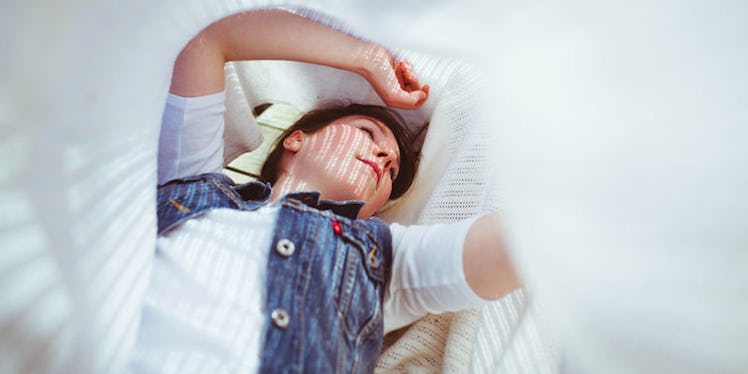
4 Ways To Fight Mild Anxiety Before Considering Professional Help
I've dealt with anxiety my entire life. As a child, I couldn't express my feelings into words because I didn't know what being “anxious” meant.
I was a compulsive nail-bitter, and everyone always asked me if I was nervous. But “nervous” was never the word.
After I went to college and majored in psychology, I realized how common GAD (generalized anxiety disorder) is. It can be triggered by the smallest things.
Some days, I am completely anxiety-free. But sometimes, I worry for days on end. Although it's been a long haul, here are my four best tactics for dealing with anxiety and being a semi-functional human being:
1. Make a calendar.
Juggling college and a full-time job is rough. Nothing makes you more anxious then having a laundry list of things to do when you come home after a 12-hour day. It's incredible how helpful a calendar can be.
I organized my calendar on Google calendar, and it automatically merged with my cell phone. When I say you have to log everything on the calendar, I mean it: I'm talking about your free time, family time, the amount of time you use to relax before, your shower, your meditation schedule, whatever it is.
Even your breakfast, lunch and dinner has to be logged. This is especially helpful for all you hungry folks out there who have a habit of skipping meals because you're so “busy.” It's important to map out your whole day from start to finish.
Once you visually see you have the time to do whatever it is you want to do, you'll feel much better. The stress of remembering everything will be taken off your shoulders. Not to mention, it'll also make planning things way easier. Your calendar will remind you of all your prior commitments beforehand.
2. Pamper yourself.
I can't stress this enough: Get out there and pamper yourself, for crying out loud. Whether that means a 60-minute massage, a 10-minute foot rub or a manicure, do it. Skip your morning latte and put it toward a monthly pamper session.
Also, please turn off your cell phone. Unwind. Let this be about you and no one else.
It's so important to do this once in a while and just let your mind wander. It will ease your tension. Putting effort into your wellness is key. (Not to mention, you'll also always have nice nails.)
If spas aren't your jam, think about this: Sometimes, you have a tough week at work. Sometimes, you even have a tough month at work.
Whether it's that new handbag you saw in the shop window or a Venti caramel macchiato, treat yo'self. You don't have to do it every day, or even every week. However, from time to time, it's important that you treat yourself and reward yourself for all the hard work that you do.
It's a way of giving yourself positive reinforcement. Be generous to yourself. You deserve it.
3. Try psychotherapy.
There's this big stigma out there that everyone who goes to therapy is a crazy person. You don't have to be bipolar or clinically depressed. In fact, there are a lot of people who go to therapy for “positive therapy.”
These are individuals who don't suffer from anxiety, depression or anything else. They simply want to optimize their lives and seek positive therapy.
The best thing for you and your anxiety (without the use of drugs) is your therapist. He or she will be your best friend, and he or she will always be there for you when you have any fears about the world. Your therapist will guide you through dealing with your irrational thoughts.
I promise you: No one has to know. Your secrets are safe with your therapist.
4. Change your surroundings.
It sucks to sit in an office for eight hours a day, every day, with those fluorescent lightbulbs beaming in your eyes. Staring at your computer is making you borderline blind.
When you come home, it's important to have your environment soothe and relax you. Buy a light dimmer or light a candle. Use a soothing scent like lavender, which has been proven to be relaxing.
In fact, I have an app on my phone that lets me play different types of rain and ocean noises. I listen to this, place a timer on it before bed and usually fall asleep way faster.
You'd be surprised; it's like falling asleep on a peaceful beach every night.
Of course, anxiety and depression are diseases, and these tips aren't meant to combat serious medical issues. If you're feeling anxious or have anxious tendencies, these cures may help make a huge difference.